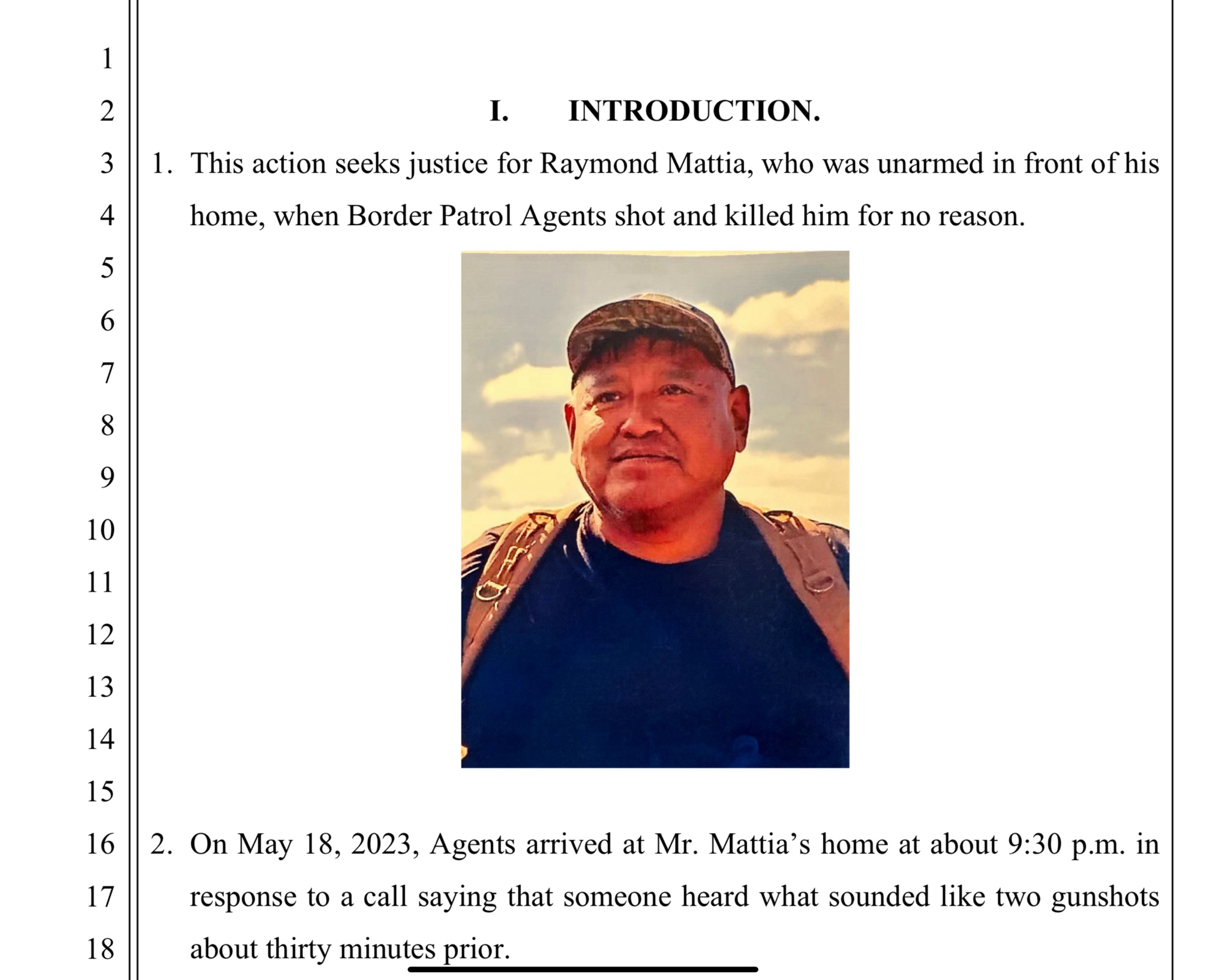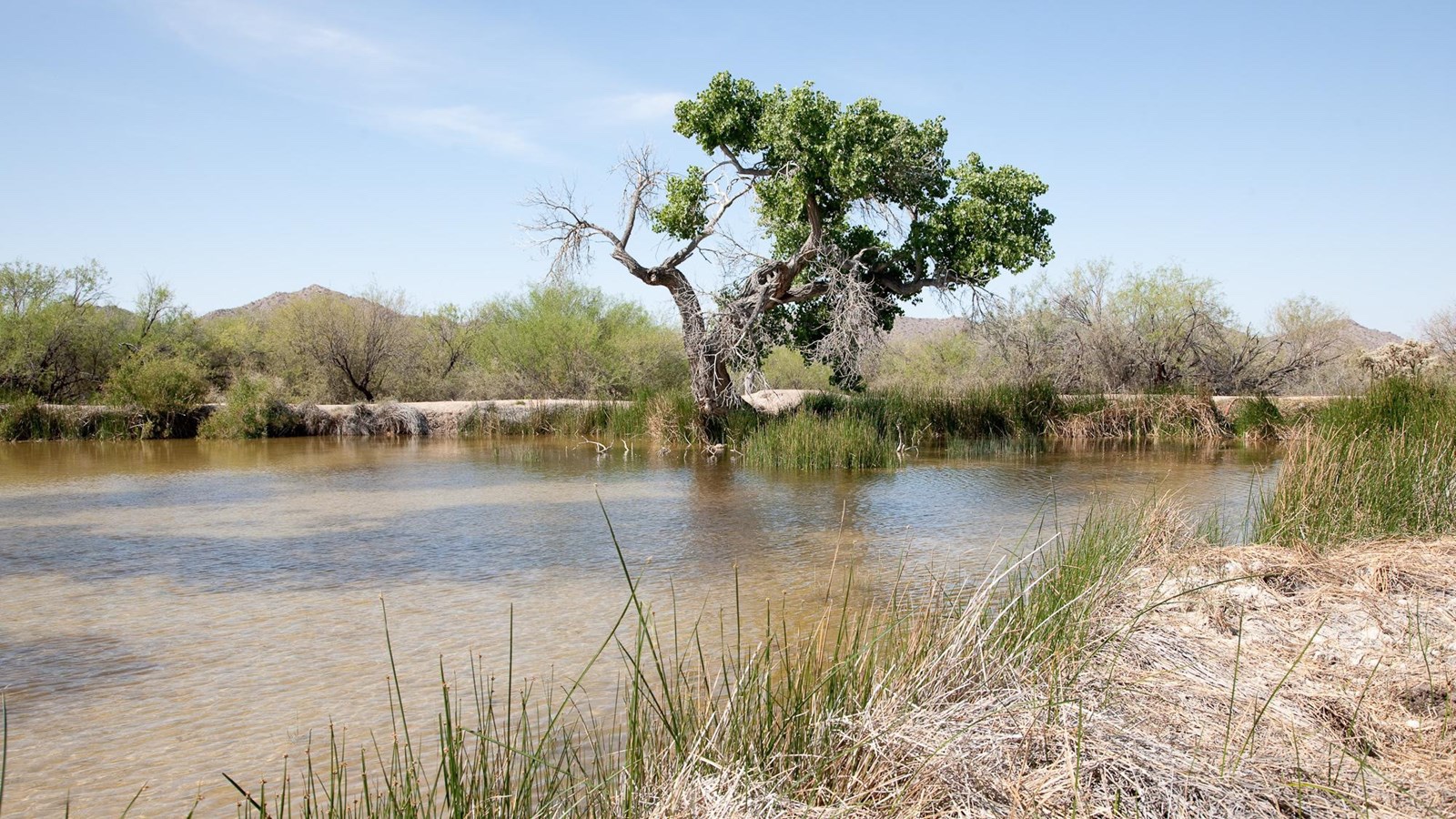Here is the complaint in Mattia v. United States (D. Ariz.):

1 CA-SA 22-0076 Tohono v. Hon Fridlund SQ – Opinion
Under Arizona law, tribes shall receive notice in voluntary proceedings:
Arizona Revised Statutes § 8-535(A) provides that after a petition for termination of the parent-child relationship has been filed, “notice of the initial hearing and a copy of the petition shall be given to . . . the tribe of any Indian child as defined by [ICWA].” The statute does not limit the notice requirement to involuntary proceedings.
***
Because neither A.R.S. § 8-535 nor the Arizona Rules of Juvenile Procedure limit an Indian tribe’s right to notice or intervention solely to involuntary parental terminations, those tribal rights extend to voluntary termination proceedings. Since the Nation was not provided notice of the initial termination proceeding, nor was it allowed to intervene, we vacate the parental termination order, grant the Nation’s motion to intervene, and remand to the superior court for further proceedings consistent with this opinion
Thank you to everyone who sent this to me within approximately 20 minutes of it being released.
Here are the materials in United States v. Ortega (D. Ariz.):

News coverage of the acquittal here.
Here are the materials in Pascua Yaqui Tribe v. EPA (D. Ariz.):
Here.
Here is the complaint in Pascua Yaqui Tribe v. EPA (D. Ariz.):
Here is the complaint in Navajo Nation v. Wheeler (D. N.M.):
Here is the brief in Trump v. Sierra Club:
Here is “‘Historical trauma’: Native communities grapple with missing and murdered women.”
Kyle Fields has posted “Tohono O’odham Legal Systems” on SSRN.
Here is the abstract:
This short essay surveys the Tohono O’odham’s legal system through three periods. First, it discusses the traditional O’odham legal system, which relied on himdag (culture or way of life). Second, it reviews how the Spanish, using an inquisitorial system based on Christian religious law, altered the O’odham’s legal system. Third, it analyzes how the secular American adversarial system changed the O’odham’s legal system.
In re EH (Fourth District, 1st Div). For reference, so far this year California has had 48 unpublished notice decisions and 19 unpublished inquiry decisions. This is the first published notice case this year.
We agree with Mother that, considering Sally Y.H.’s statement to the Agency that her paternal family had Tohono O’odham Nation heritage, the Agency had a duty to attempt to obtain Sally Y.H.’s father’s identifying information and to provide notice of any such information obtained to the Tohono O’odham Nation. We further conclude that the Agency has not demonstrated that it fulfilled that duty by providing the Tohono O’odham Nation with information pertaining to an individual named Bruno Y. since it is not clear from the record that Bruno Y. is Sally Y.H.’s father. Moreover, if Bruno Y. is Sally Y.H.’s father, and E.H.’s great-great-grandfather, the Agency failed to properly describe his ancestral relationship to E.H. on the notice provided to the Tohono O’odham Nation. Finally, given that Sally Y.H. told the Agency that her paternal family had heritage from the Tohono O’odham Nation, we cannot conclude that the Agency’s errors were harmless. Accordingly, we reverse the judgment for the limited purpose of having the Agency provide the Tohono O’odham Nation with proper notice of the proceedings in this case, including accurate information pertaining to all known direct lineal ancestors of E.H., in accordance with all applicable law.3
***
FN 3. Mother also contends that the notice that the Agency provided to the Tohono O’odham Nation was deficient for several additional reasons, including that the Agency erred in listing her current address as being “no information available,” and in failing to update the notice when information about her residence became available. In light of our reversal, we need not consider these contentions, but we direct the juvenile court to ensure that the Agency provides Mother’s correct current address at the time of noticing upon remand, if known.
In addition, Mother contends that the Agency provided the tribe an incorrect address for Sally Y.H. The Agency concedes that the address that it provided for Sally Y.H. contained typographical errors, including listing the city of her residence as ” ‘Alpaso’ ” rather than ” ‘El Paso,’ ” but argues that any errors were harmless. In support of its harmlessness argument, the Agency asks this court to take judicial notice of the fact that “El Paso is a city in the state of Texas and Alpaso is not.” The juvenile court is directed to ensure that the Agency provides Sally Y.H.’s correct current address at the time of noticing upon remand, if known. We deny the Agency’s request for judicial notice as moot.
Finally, Mother states that the Agency was required to list Mother’s and Sally Y.H.’s telephone numbers on the notice that it provided to the Tohono O’odham Nation. On remand, the juvenile court shall direct the Agency to provide Mother’s and Sally Y.H.’s telephone numbers, if known. (See Welf. & Inst. Code, § 224.2 [specifying that notice sent to a tribe shall include “[a]ll names known of the Indian child’s biological parents . . . and great-grandparents . . . as well as their current and former addresses, birthdates, places of birth and death, tribal enrollment numbers, and any other identifying information, if known”], italics added; unless otherwise specified, all subsequent statutory references are to the Welfare and Institutions Code.)
***
This argument is unpersuasive since the letter from the Tohono O’odham Nation does not indicate the basis upon which the tribe made its determination as to E.H.’s Indian child status. Nor can we agree with the Agency’s suggestion that the fact that the Tohono O’odham Nation did not ask for further information demonstrates that the Agency’s error was harmless. The tribe was not required to ask the Agency to provide information that the record indicates the Agency should have reasonably attempted to obtain and provide to the tribe. Thus, we decline to find the Agency’s error harmless simply because the tribe did not indicate that further information might have altered its determination, particularly given the other noticing errors acknowledged by the Agency.
You must be logged in to post a comment.